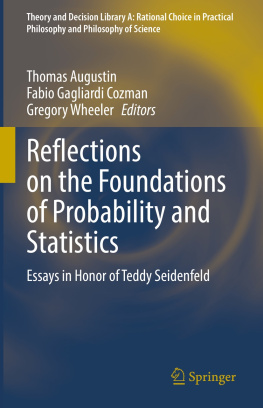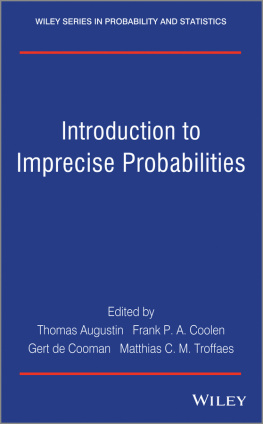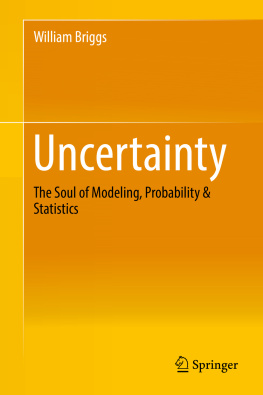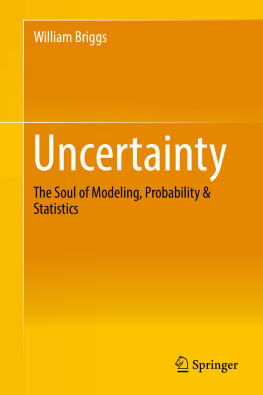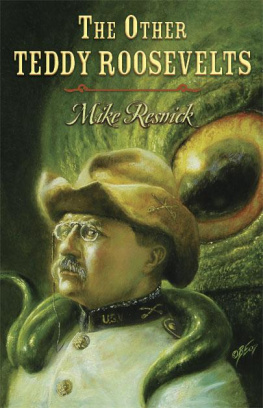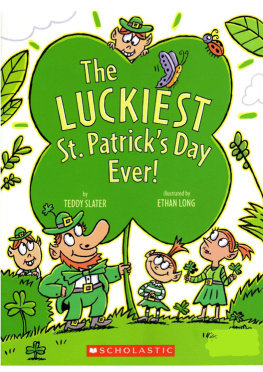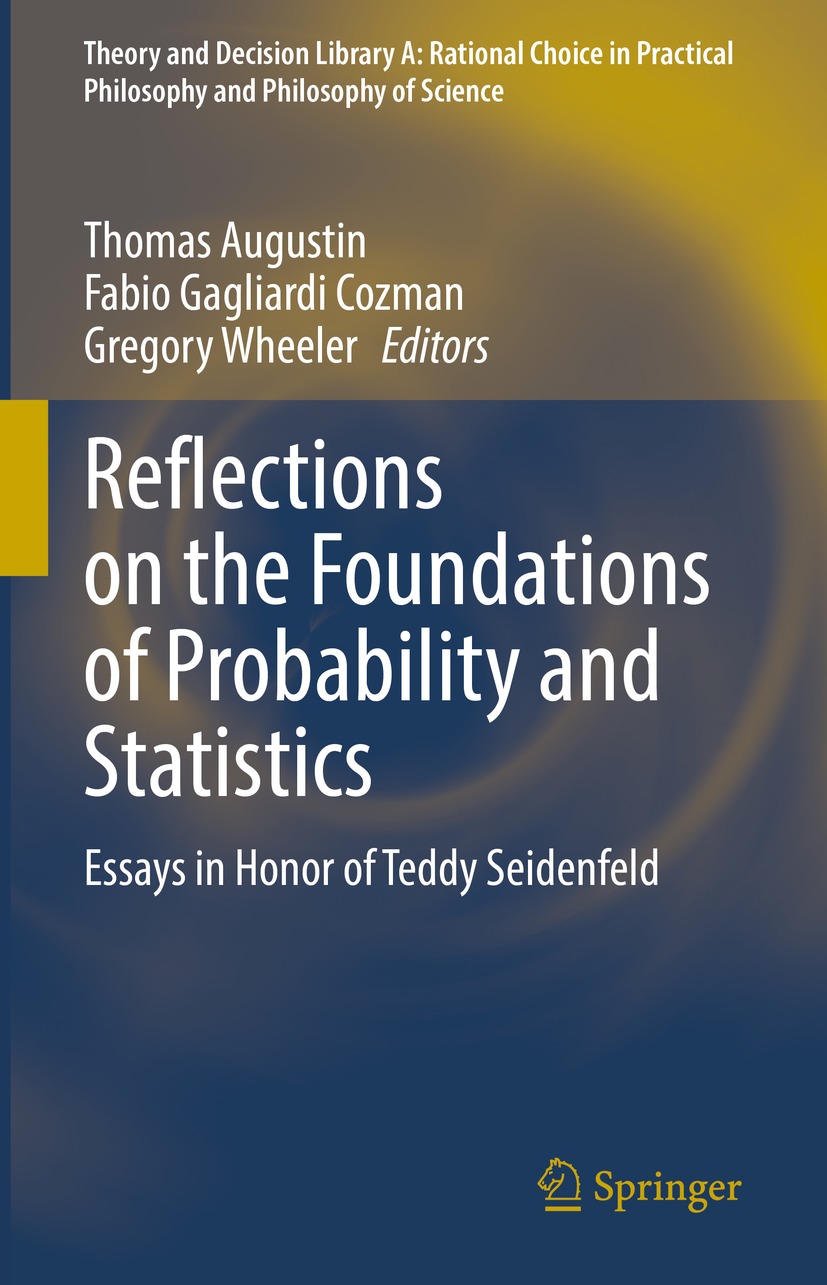Volume 54
Theory and Decision Library A: Rational Choice in Practical Philosophy and Philosophy of Science
Series Editors
Julian Nida-Rmelin
Ludwig-Maximilians-Universitt Mnchen, Mnchen, Berlin, Germany
Martin Rechenauer
Ludwig-Maximilians-Universitt Mnchen, Mnchen, Germany
Editorial Board
Franz Dietrich
Paris School of Economics, Paris, France
Stephan Hartmann
Ludwig-Maximilians-Universitt Mnchen, Munich, Germany
Martin Van Hees
Department of Philosophy, Vrije Universiteit Amsterdam, Amsterdam, Noord-Holland, The Netherlands
Bertrand Munier
Lcole des grands projets, Cachan, France
Olivier Roy
Institut fr Philosophie, GW II, Universitt Bayreuth, Bayreuth, Bayern, Germany
Amartya Sen
Dept of Economics, Harvard University, Cambridge, MA, USA
Brian Skyrms
Dept of Logic and Philosophy Sci, University of California, Irvine, Irvine, CA, USA
Wolfgang Spohn
FB Philosophie, Universitt Konstanz, Konstanz, Baden-Wrttemberg, Germany
Katie Steele
Research School of Social Sciences, Australian National University, Canberra, ACT, Australia
Greg Wheeler
Frankfurt School of Finance & Management, Frankfurt, Germany
This series deals with practical and social philosophy and also foundational issues in philosophy of science in general that rely on methods broadly based on rational choice. The emphasis in the Series A is on well-argued, thoroughly analytical and philosophical rather than advanced mathematical treatments that use methods from decision theory, game theory and social choice theory. Particular attention is paid to work in practical philosophy broadly conceived, the theory of rationality, issues in collective intentionality, and philosophy of science, especially interdisciplinary approaches to social sciences and economics.
Editors
Thomas Augustin , Fabio Gagliardi Cozman and Gregory Wheeler
Reflections on the Foundations of Probability and Statistics
Essays in Honor of Teddy Seidenfeld

Logo of the publisher
Editors
Thomas Augustin
Department of Statistics, Ludwig-Maximilians-University of Munich, Munich, Germany
Fabio Gagliardi Cozman
Universidade de So Paulo, So Paulo, Brazil
Gregory Wheeler
Frankfurt School of Finance & Management, Frankfurt am Main, Germany
ISSN 0921-3384 e-ISSN 2352-2119
Theory and Decision Library A:
ISBN 978-3-031-15435-5 e-ISBN 978-3-031-15436-2
https://doi.org/10.1007/978-3-031-15436-2
The Editor(s) (if applicable) and The Author(s), under exclusive license to Springer Nature Switzerland AG 2022
This work is subject to copyright. All rights are solely and exclusively licensed by the Publisher, whether the whole or part of the material is concerned, specifically the rights of translation, reprinting, reuse of illustrations, recitation, broadcasting, reproduction on microfilms or in any other physical way, and transmission or information storage and retrieval, electronic adaptation, computer software, or by similar or dissimilar methodology now known or hereafter developed.
The use of general descriptive names, registered names, trademarks, service marks, etc. in this publication does not imply, even in the absence of a specific statement, that such names are exempt from the relevant protective laws and regulations and therefore free for general use.
The publisher, the authors, and the editors are safe to assume that the advice and information in this book are believed to be true and accurate at the date of publication. Neither the publisher nor the authors or the editors give a warranty, expressed or implied, with respect to the material contained herein or for any errors or omissions that may have been made. The publisher remains neutral with regard to jurisdictional claims in published maps and institutional affiliations.
This Springer imprint is published by the registered company Springer Nature Switzerland AG
The registered company address is: Gewerbestrasse 11, 6330 Cham, Switzerland
Preface
About 5 years ago, we noticed that Teddy Seidenfeld, although as active and cheerful as always, was approaching his 70th birthday(!). We then decided to put together a Festschrift to celebrate Teddys many contributions to philosophy, statistics, probability, game theory, and related fields. This volume covers a subset of those themes; going through all topics that have received Teddys attention would require a series of books. We hope the reader will continue this celebration by reading the many papers written by Teddy himself with his many collaborators.
Teddy was born in New York City in May 1948. He took a major in mathematics and philosophy at the University of Rochester and then a PhD in philosophy at Columbia University. He started his academic career as an assistant professor at the University of Pittsburgh, moved to Washington University in St Louis, where he was an associate professor, then to Carnegie Mellon University, where he is now the H. A. Simon Professor of Philosophy and Statistics. In his distinguished career at Carnegie Mellon, Teddy has worked as head of the Department of Philosophy, as graduate director of the logic and computation program in philosophy, as co-director of the machine learning graduate program, and as chairman of the Faculty Senate.
Rather than write a dry review of Teddys career, we decided to interview Teddy to offer his own thoughts on past events. We are most grateful to Teddy for providing witty and detailed answers to our many questions in fact, we had to limit ourselves to a small fraction of our questions to keep the interview within a reasonable size. The reader will find the interview in the first chapter of this book, ranging from Teddys experiences as a baseball fan and chess player to his formative years as an undergraduate and graduate student. The reader will also find insightful answers on Teddys collaboration with Henry Kyburg and Isaac Levi, his advisers at Rochester and Columbia, respectively, on Teddys long-standing collaboration with his colleagues Jay Kadane and Mark Schervish at Carnegie Mellon, as well as commentaries on Teddys perspective on research.
Teddy has written extensively on the foundations of probability and statistics, individual and group decision theory, and on the interface between philosophy and statistics. His contributions range from deep mathematical results on finitely additive or infinitesimal probability to general consequences of coherence and consensus in statistical reasoning and decision-making. His perspective is always based on solid mathematical arguments. Indeed, Teddy seems to have a particular interest in examining the limits of proposed theories, for instance, by visiting cases where measure-theoretic probability theory leads to unexpected and sometimes unpleasant conclusions. Thus Teddy has produced, with his collaborators, a collection of gems on finitely additive probability, for instance, looking at the consequences of finite (not -)additivity to conglomerability, sequential decision theory, and convergence theorems. Teddys analysis of decision theory, and of sequential decision theory in particular, has led to a refined understanding of connections between acts and beliefs, normal and extensive forms, and unbounded utilities. And Teddy has often returned to questions related to convergence and consensus, carefully mapping cases that go beyond the usual convergence-to-certainty results at the core of probability theory. Consensus, of course, does not arise only through convergence; Teddy has also examined the shared preferences of decisions makers and how those preferences may, and may not, coalesce into common preferences.

